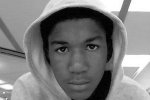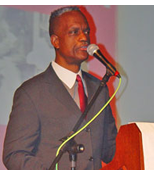By Dr. Selwyn R. Cudjoe
March 05, 2014
Part 1
A nation should not be judged by how it treats its highest citizens, but its lowest ones—and South Africa treated its imprisoned African citizens like animals.
—Nelson Mandela
 I am pretty certain that Keith Rowley will emerge victorious during the PNM’s party election and go on to become the next prime minister of Trinidad and Tobago. Fortunately, that is the easy part of the political equation. The more difficult part is to govern in such a way that the society emerges in a better place than it is in 2014. That’s the challenge PNM faces when it takes the helm of government. However, if Rowley and the PNM fail to leave Trinidad (and especially our brothers and sisters in our depressed areas) in a better way than they found them in 2014, one can confidently predict that 2020 would mark the beginning of the end of the PNM as a political force in our country.
I am pretty certain that Keith Rowley will emerge victorious during the PNM’s party election and go on to become the next prime minister of Trinidad and Tobago. Fortunately, that is the easy part of the political equation. The more difficult part is to govern in such a way that the society emerges in a better place than it is in 2014. That’s the challenge PNM faces when it takes the helm of government. However, if Rowley and the PNM fail to leave Trinidad (and especially our brothers and sisters in our depressed areas) in a better way than they found them in 2014, one can confidently predict that 2020 would mark the beginning of the end of the PNM as a political force in our country.
Continue reading PNM’s Last Chance


